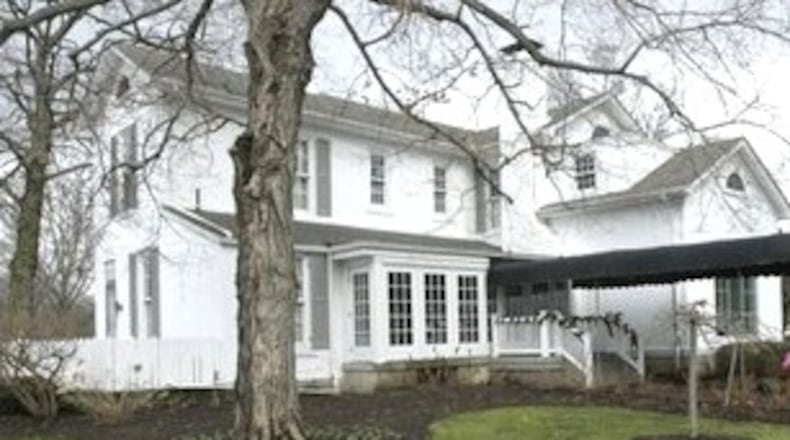Early pioneers
In the early 1800s, John Bigger Sr., born in Ireland in 1760, came to the part of the Northwest Territory that became Montgomery County.
He had served in the Revolutionary War and, in 1813, was awarded land for this service.
The John Bigger Sr. family helped establish the Sugar Creek Associate Presbyterian Church in Bellbrook. This later became the Sugar Creek Presbyterian Church at Bigger Road and Wilmington Pike in Kettering.
In 1854, John Bigger Sr’s grandson, Joseph Bigger, along with his wife, Ann, built the house and barn at 5099 Bigger Road, in present-day Kettering. It is believed the barn was added in 1864.
Credit: Chris Stewart
Credit: Chris Stewart
After Joseph Bigger died in 1908 and his wife died in 1917, their daughter, Cora Bigger Walcutt, took over the property. She kept the house until 1940, when she sold it to Russell V. Polen.
Russell V. Polen
Russell V. Polen was an apprentice with the G. Young Machine Co. in Chillicothe from 1907 to 1910. He was a toolmaker with the Jeffery Manufacturing Company from 1911 to 1913, when he came to Dayton to work with the Delco Starter firm.
In 1920 Polen left Delco for a new post in the Frigidaire division of General Motors.. Over the years he worked his way up in the company, becoming assistant manager of plants at Frigidaire in 1940 and works manager in 1948.
Polen was about 47 years old when he purchased the Bigger property from Cora Wolcutt. The farmhouse, barn and adjoining land covered nearly 147 acres. Polen later subdivided that land and sold all but 15 acres, keeping the farmhouse and barn.
Polen named the the two-story white brick house “White Oak Farm” and added the pillared porch and wings in 1946. He also made renovations to the barn.
Sold to Kettering
In 1974, the City of Kettering agreed to terms with Polen to purchase the 15-acre property. Under a life estate plan, Polen still lived at the farmhouse until his death in 1979.
Kettering then turned the farm into a community facility.
A major remodeling project with extensive renovations was completed in 1996.
About the Author





